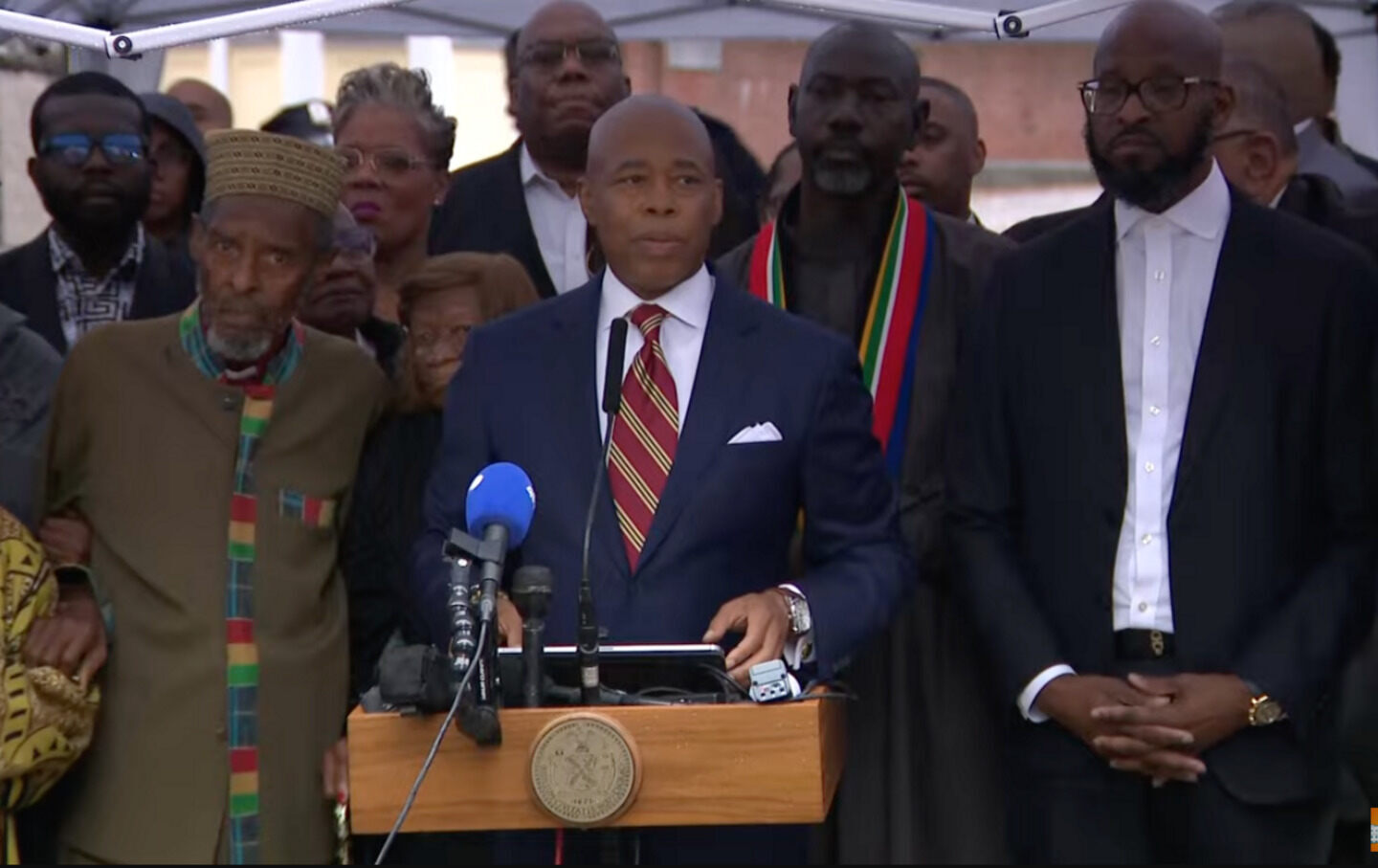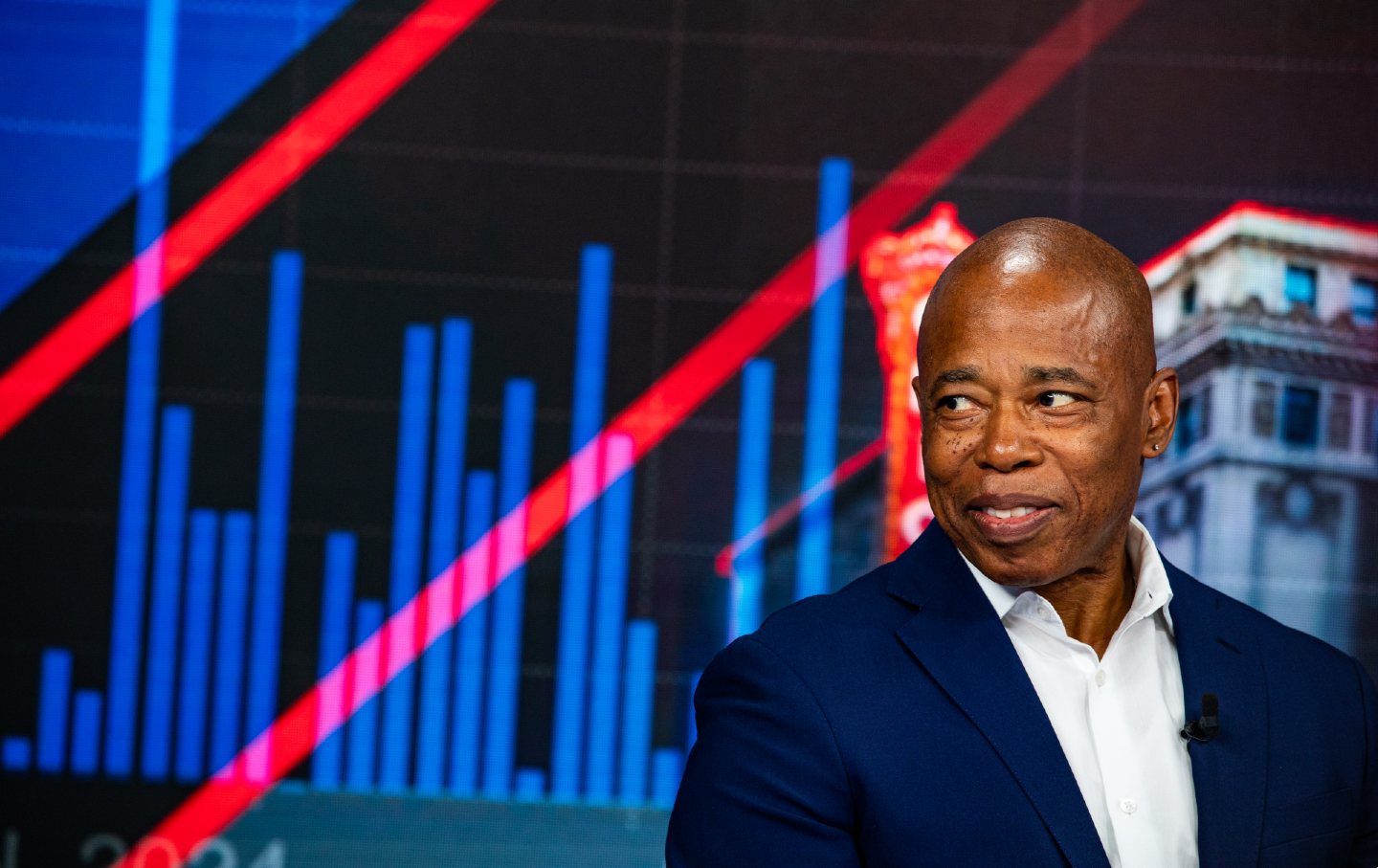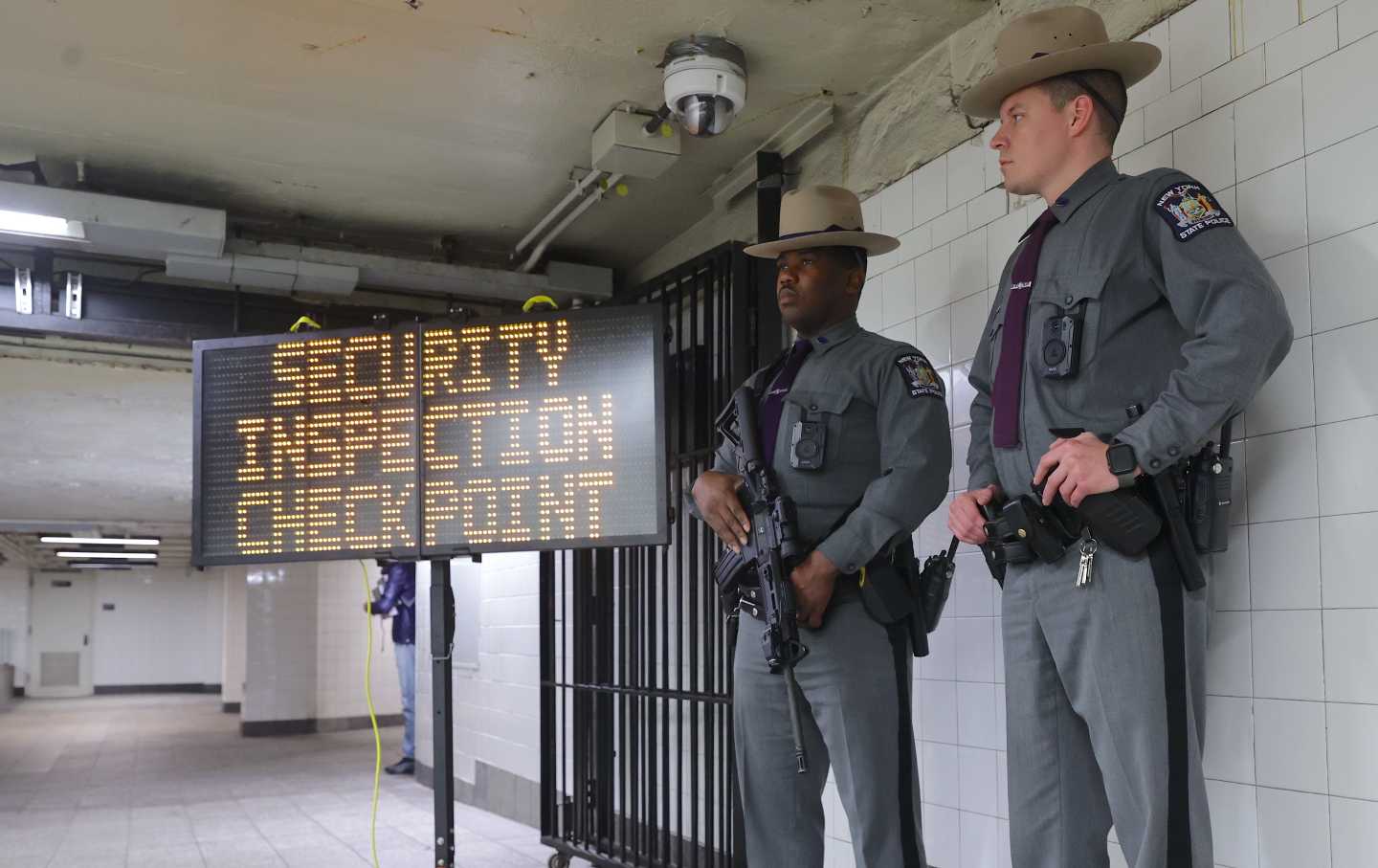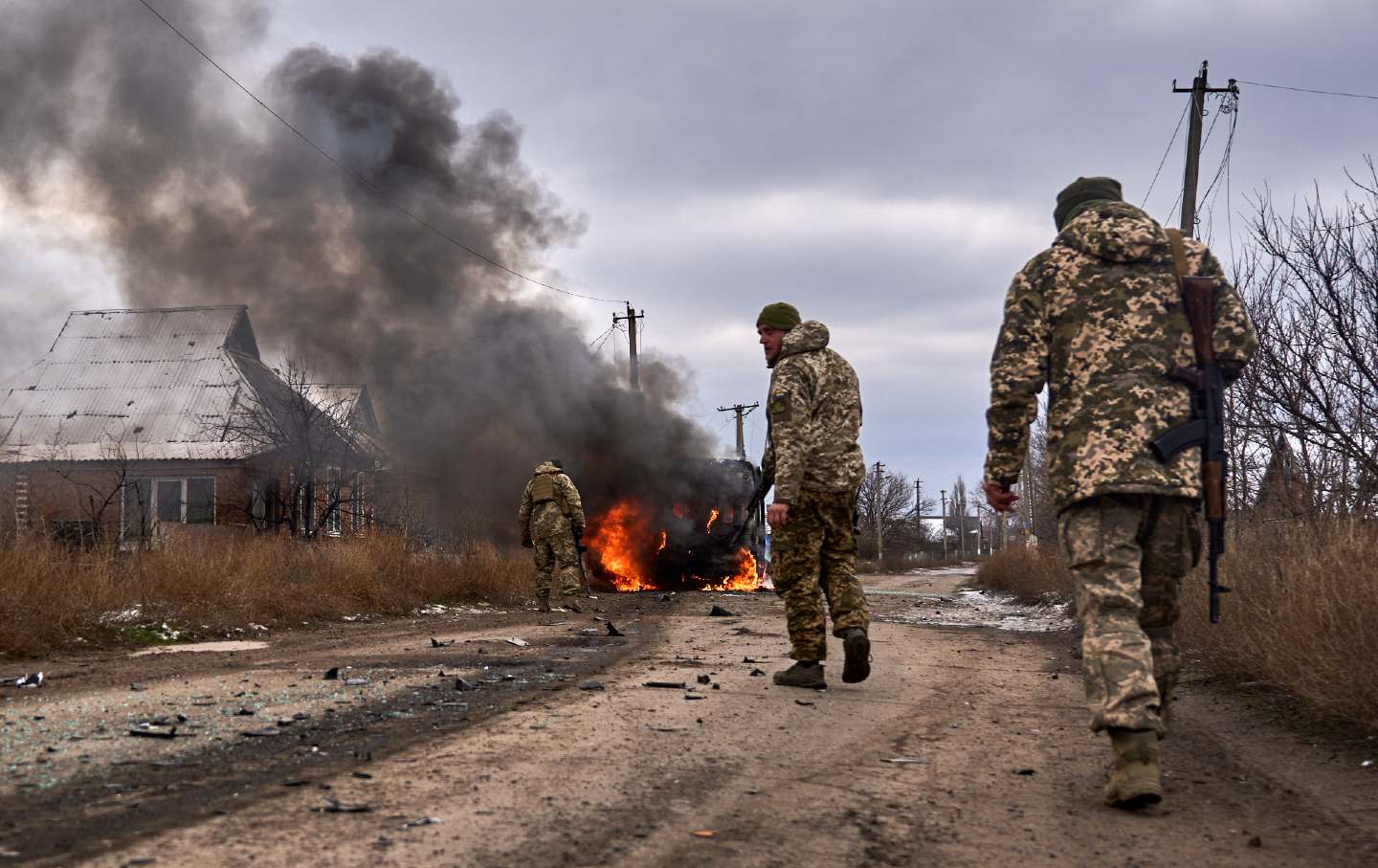New York’s Long Congressional Redistricting Nightmare Finally Comes to an End
Liberals and leftists hoping for a sure path to retaking the House may be disappointed, but Democrats should still do well. And voters and incumbents each gain valuable clarity.
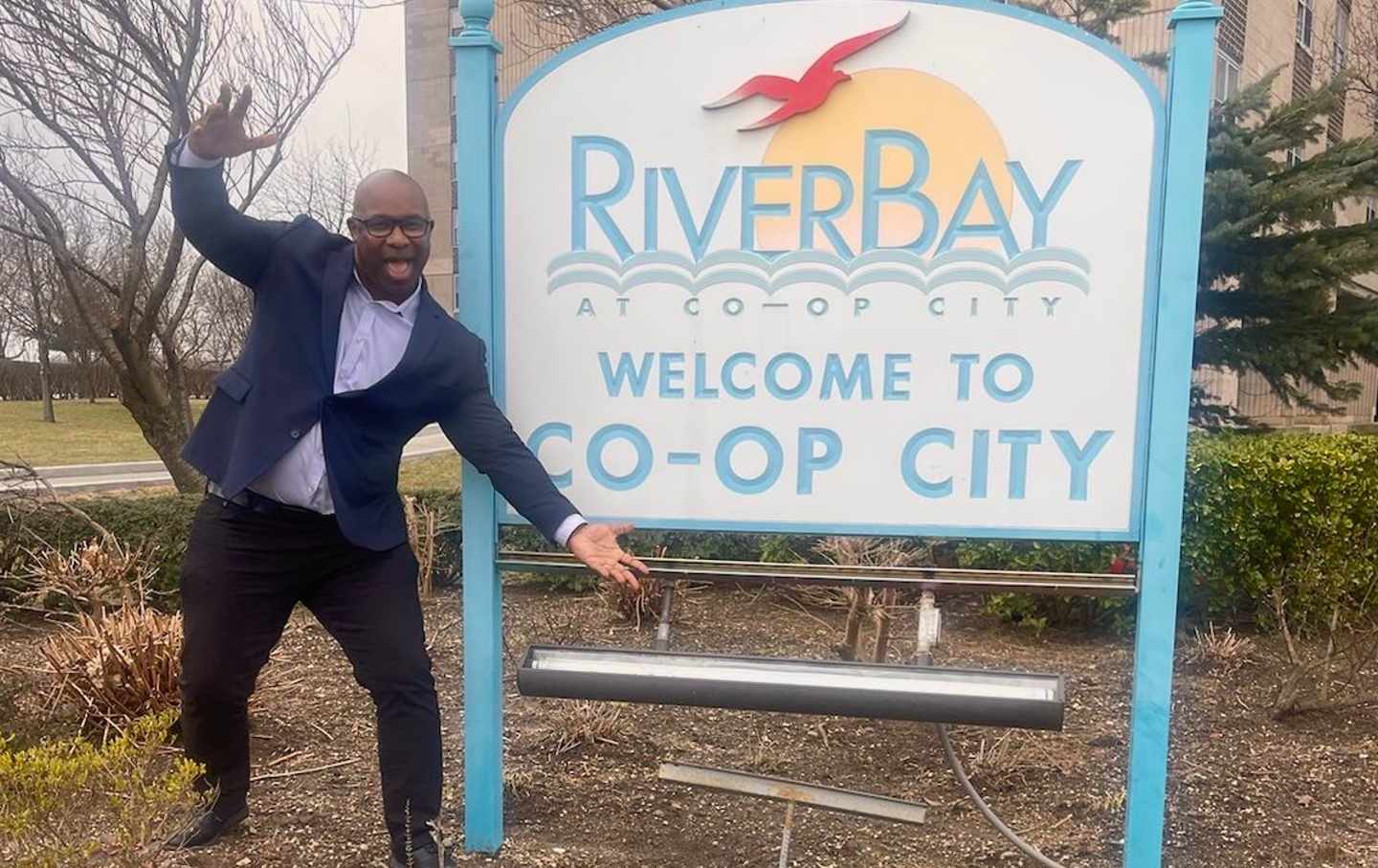
New York’s bizarre, multiyear redistricting saga has finally come to a close.
The short of it: Liberals and leftists hoping for a very favorable congressional map in deep-blue New York State walked away disappointed. The maps, for Democrats, aren’t bad by any means—they offer the conditions, if campaigns are run well, for taking back the House—but they aren’t the dreamed-for gerrymander that was initially attempted in the hopeful early months of 2022. There was no Park Slope/Staten Island fusion or a district that leaps across the Long Island Sound from Westchester to Nassau County.
Instead, Democratic state legislators largely stuck to the 2022 maps drawn by the court-appointed special master (and mostly rubber-stamped by a bipartisan commission last month) that so enraged Democrats because they overrode opportunities to easily flip districts—New York’s highest court, which at the time had a more conservative majority, ruled, in part, that the maps drawn by the legislature violated the state’s vague anti-gerrymandering clause—and didn’t take the needs of long-serving incumbents into account. The special master, a political scientist and redistricting expert appointed by an upstate Republican judge, carved out a Manhattan seat that tossed together Jerry Nadler and Carolyn Maloney, forcing them to run against each other in a bitter primary. (Nadler won.)
But for all the Democratic griping, some of it legitimate, there was tacit acknowledgment from pols like Hakeem Jeffries, the Brooklyn Democrat who might be the next House speaker, that another prolonged court battle over New York’s congressional maps wasn’t worth it. The finalized districts marginally boost the fortunes of Democrats—and that might be enough, given the GOP’s tenuous majority under Mike Johnson, to flip the House.
So what has changed? First-term Republican Brandon Williams, who represents a Syracuse-area district, is more endangered now than he was before, taking in the Democrat-friendly terrain of Cortland and Auburn. Tom Suozzi, the Democratic congressman who claimed his old seat after the chaotic George Santos interregnum, will see his district move slightly east, roping in portions of Suffolk County that favor Democrats.
Mike Lawler and Marc Molinaro, two other first-term Republicans north of New York City, didn’t see their districts change much, which angered some Democrats. But Joe Biden carried their turf in 2020 and the belief, at least from Jeffries and top Democrats in the state legislature, is that the surge in anti-Trump turnout should be enough to at least wash away Lawler. The same is true on the South Shore of Nassau County, where freshman Republican Anthony D’Esposito is clinging to a district Biden carried by double digits in 2020.
The highest-profile House race in New York, though, will be a primary—and that district, in Westchester and the northern Bronx, was tweaked slightly in favor of the beleaguered incumbent, Jamaal Bowman. Bowman, a “Squad” member who is facing down a fierce, AIPAC-financed challenge from George Latimer, the Westchester County executive, was able to reclaim vote-rich Co-op City in the Bronx. The primary, between the white challenger and the Black incumbent, is expected to polarize along racial and ideological lines, and adding the sprawling, working-class housing development aids Bowman. His gains were tempered, though, by the removal of Wakefield, a Bronx neighborhood with a large percentage of Black voters.
Bowman allies, overall, were pleased that the number of Black voters in his new district increased.
If there is a single takeaway from this byzantine, brain-numbing, two-year redistricting circus, it’s that the whole process remains deeply broken and has been that way for a decade. Blame should be reserved for the disgraced former governor Andrew Cuomo, who created a bipartisan commission a decade ago that, in most instances, was designed to deadlock and allow the state legislature to draw its own lines. This is what happened in 2022. Cuomo, a centrist, had hoped this would damage progressive Democrats because Republicans, at the time, controlled the state Senate and wielded a great deal of power in the state capital.
Democrats run Albany now. But it was the Cuomo-appointed judges who shot down their 2022 gerrymander and set up the oddity of a multiyear fight over congressional districts that has confused and exhausted many voters.
What should have happened? New York could have followed the examples of California, Arizona, and Michigan by creating an actual independent redistricting commission that made decisions without interference from elected officials. Fair lines drawn in a transparent manner are good for everyone. Cuomo didn’t want independent redistricting, and his successor, Kathy Hochul, hasn’t pushed it either. Democrats in the state legislature have a chance, now, to ensure that this chaos doesn’t repeat in 2032.
The irony is that the special master’s lines, sketched with virtually no public input in 2022, were mostly fair. But the process was anything but fair; after Republicans won their court challenge, a single judge in rural Steuben County got to make the decision. There was no panel of experts huddling together after taking months of public comment in cities across the state—cities that could be easily accessed by trains and buses. One judge and one special master got to decide it all.
Now, New York has its congressional lines. House Democrats, if they aren’t inept this fall, should do well enough. And voters, more importantly, no longer have to keep guessing over who their representative in Congress might be.
Hold the powerful to account by supporting The Nation
The chaos and cruelty of the Trump administration reaches new lows each week.
Trump’s catastrophic “Liberation Day” has wreaked havoc on the world economy and set up yet another constitutional crisis at home. Plainclothes officers continue to abduct university students off the streets. So-called “enemy aliens” are flown abroad to a mega prison against the orders of the courts. And Signalgate promises to be the first of many incompetence scandals that expose the brutal violence at the core of the American empire.
At a time when elite universities, powerful law firms, and influential media outlets are capitulating to Trump’s intimidation, The Nation is more determined than ever before to hold the powerful to account.
In just the last month, we’ve published reporting on how Trump outsources his mass deportation agenda to other countries, exposed the administration’s appeal to obscure laws to carry out its repressive agenda, and amplified the voices of brave student activists targeted by universities.
We also continue to tell the stories of those who fight back against Trump and Musk, whether on the streets in growing protest movements, in town halls across the country, or in critical state elections—like Wisconsin’s recent state Supreme Court race—that provide a model for resisting Trumpism and prove that Musk can’t buy our democracy.
This is the journalism that matters in 2025. But we can’t do this without you. As a reader-supported publication, we rely on the support of generous donors. Please, help make our essential independent journalism possible with a donation today.
In solidarity,
The Editors
The Nation

